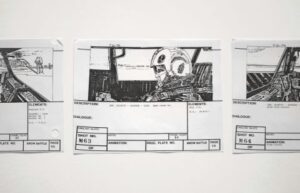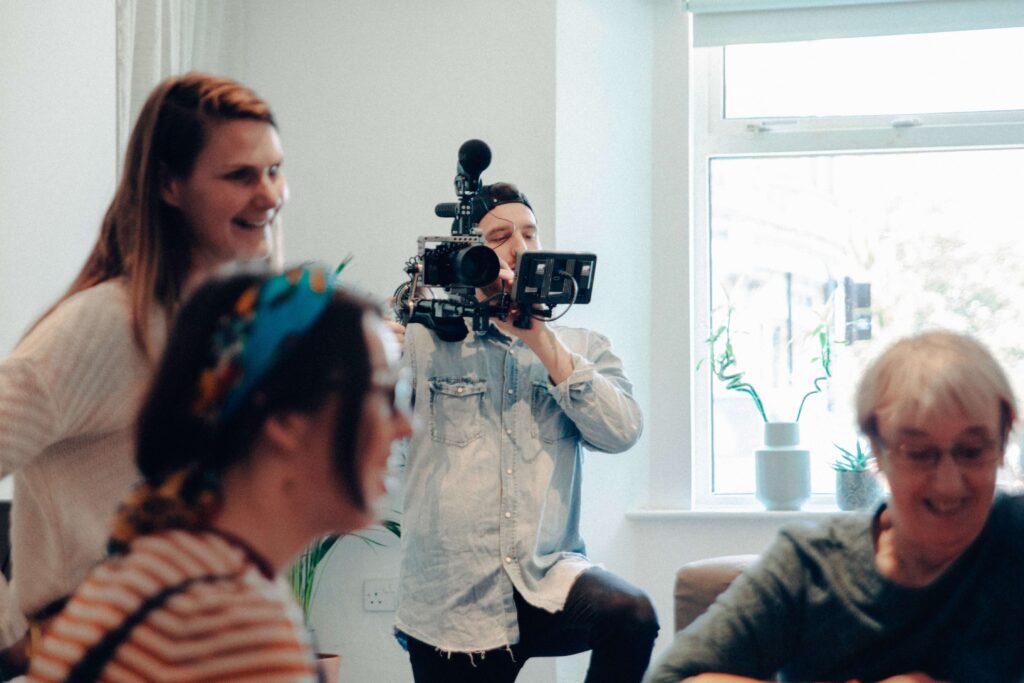Online Film School Free » Film Directing Course » how to direct a movie
How to Direct A Movie?
Table of Contents
ToggleDirecting films is a hard job. Take a movie like Dallas Buyers Club – did you know it took the script 20 years to become a movie? The production of the movie started and ended almost 140 times. Whether you are planning to do an amateur film or a professional one, you will still need to go through a pretty complicated process: choose a script, find your actors, and shoot and edit the film. How to direct a movie is a very complex and challenging concept to teach as step by step guide. No matter how much you’ll learn, your first film will be a stressful experience. Still, I promise you that it will be a very rewarding one too. At the end of the day, like everything else, practice enough, and you can do it. This article is for students in a hurry and don’t have time to go through all of the Film Directing courses. In this article/lesson, I’m giving you eight directing tips that will help you on how to direct a film. Some of the tips here go beyond film directing basics, so pay attention.
The Steps to take when you get a script
Scripts are maps the producers, directors, and actors use to create the movie, but there are phases the script needs to go through to become the outcome we see on screen. Here are the steps the director needs to take once he chooses a script to shoot.
- Don’t waste your time – Before you start reading a new script, you need to make sure that the script is written in the correct format and read the synopsis and treatment to see if the script uses the three-act structure and a sharp conflict. You can read about all these things in the scriptwriting course. You don’t want to waste your time on a script that is not following the essential story tools.
- Do you like the script? Now, you have to make sure it is good enough to go through the all filmmaking journey. Start by reading the first ten pages and seeing if it’s dawning on you. Can you guess how the story is going to continue? Does it interest you? The next step is to read the script without your professional glasses and read it for fun as if you were reading a novel. Does the script make you tingle? Do you feel the passion for putting it on screen? If so, you are ready to move to your next step.
- Meeting the screenwriter – The purpose here is to see if the screenwriter is someone you can work with and understand his vision. Your mission here is to create a creative dialogue between you and the screenwriter and exchange ideas about how the film should look.
- Test The Script on others – Let friends you trust read it (they don’t have to be professionals from the industry. It’s even better if they won’t be), and try to understand from them the weak and strong points of the script. You can also try it with actors. If you have actors you know you will work in this film, use them; if not, hire some just for this reading exercise. Do a read-through with them, and let the screenwriter be there too.
- Improve the script – After the reading, sit with the screenwriter and try to understand what needs to be improved. You can also ask the actors if there were any parts in the script that felt unnatural. Remember that the screenwriter is the one in charge of the script. Please don’t go into extreme arguments with them. On the other hand, every screenwriter needs to be open to changes that will take through all production, and rewrites are always needed. It would help if you found a balance between the directorial ideas, production needs, and the writer’s vision. I recommend involving the screenwriter as much as possible during the film production, especially at the beginning. Getting the screenwriter involved will help build a respectful relationship between you, which might come in handy later on. Now it’s time to start working on the script development.
Tips for developing a script
By now, you should have a new understanding of the film’s concept. Is it something you can deliver efficiently through the film, and is it worth sharing? Reread the script, and think about the importance of each scene. How does it contribute to the story and the film’s concept? If a scene does not develop the story or the character, why is it there? Make sure every scene has a beginning, middle, and end, and break the scenes into beats. Pay attention to each one of the characters. Are they helping the story? Are their motivations clear (especially the hero)? Are they multidimensional, and are they developing and changing through the film?
Now, reread the script and pay attention to any images or ideas that pop into your head. Don’t judge them. Just write them down (in the script or a different notebook). This type of reading should be slow, and you need to think about things like:
- props
- lights
- costumes
- or any idea that comes into your head
After you finish, go through all of your notes and start writing your director’s vision. We have a particular lesson in this film direction course, so if you haven’t read it yet, please do so before moving on to the following lessons.
The director steps after choosing the script
In the article, filmmaking for beginners, I’m talking about all you need to know before becoming a filmmaker. I recommend reading it before you move on to learn what you need to direct a movie. If you read it already, please move on.

- Planning – Directing a movie is not easy, so if there is one thing you must do is to make your directing process more manageable, it is to plan your film carefully. Film producers and directors always begin with planning as much as they can. What do you need to prepare? Planning is a big subject, but here are the main things:
First, you need to know how you want the film to look.
I recommend reading our article on the director’s vision. That will help you understand how to choose the way your film will feel and look. Your first step to achieving that is to understand your idea of the movie and make sure it is clear to you and your staff. Once you can write your idea of the film in 50 words or less, it is clear.
Your next step in planning is to go through every scene in the script and break it down. Breaking down the text means identifying elements needed to shoot and edit the scene in all the scene elements like locations, props, costumes, actors, music… Usually, that’s a thing for the producer to do, but for the director, it’s a chance to find elements he can adjust his vision. Breaking down the script will also help you to know your script inside out.
2. Learn the different shots and their meaning – If you want to direct a film, you need to learn about the different shots. The angles of camera shots are essential for delivering the film’s meaning. Usually, In every scene, the director will choose different camera angles. The angles of the shots will have a significant effect on the atmosphere of the movie, and it can dramatically affect the way the audience will perceive the characters.

3. Write a shooting script – Don’t improvise on the set because you won’t be able to think there. If you want to read more about it, check out our article about shooting scripts.
4. Build a budget – Don’t go to shooting without knowing how much it is going to cost you. Once you understand how much it is going to cost, you should also try to get financing. If you want to learn more about it, read this article about building your budget.
5. Find a producer – It might look at the start you can do everything by yourself, but once you are on set, you’re going to need some help. On the set you need as much work as you can, so you can focus on directing.
6. Cast the best crew you can get – They say 90 percent of directing actors are casting. I think it’s true, but it’s true about every department in your film. It is crucial to find crew and actors that believe in your movie and with whom you got a good connection with them. They need to be willing to do whatever it takes to make your vision come true. Please read this article about Audition Actors to get some tips on doing it right.
7. Rehearse – Do film acting rehearsal before shooting and help your actors build their character. Talk about their back story, and give your actors homework.

8. Be open to changes – Learning how to direct a movie starts with understanding the world around you. So the first tip was to be prepared, but sometimes on set, you might get some new ideas. You need to stay focused on your plan, but if an excellent idea pops up, consult your crew and decide whether to use it or not



